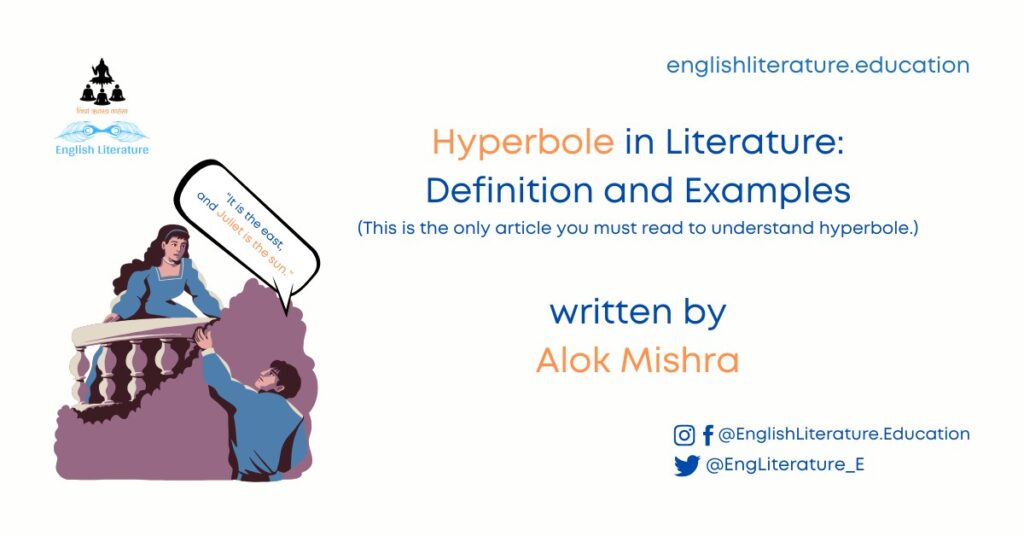Deus Ex Machina: The Literary Device That Resolves All Problems
In this article, you will learn about Deus Ex Machina, a literary device used to resolve seemingly unsolvable problems in a story. Let me guess; you heard this for the first time? Right? If so, this is the right platform. You have reached the website offering quick and easily digestible literary information. Begin with something simple, fast and just what you need. Below is a quick summary of the most important aspects of this device. If you’re in a hurry, this should suffice. If not, read the full article—you might not need another explanation of Deus Ex Machina again!
Quick Summary Box
Deus Ex Machina (Latin for “god from the machine”) is a plot device where an unexpected, implausible, or artificial solution is introduced to resolve a story’s conflict. It often feels abrupt, unearned, or convenient, as it doesn’t arise naturally from the narrative.
Key Elements of Deus Ex Machina
- Sudden Resolution – A problem is solved abruptly, often without foreshadowing.
- Example: A long-lost heir appears to claim the throne in the final act.
- External Intervention – The solution comes from an outside force (gods, fate, luck, etc.).
- Example: A divine being descends to save the hero at the last moment.
- Lack of Narrative Build-Up – The resolution doesn’t emerge from character choices or prior events.
- Example: A previously unknown superpower helps the protagonist win.
In literature, Deus Ex Machina can be controversial—some writers use it for dramatic effect, while critics argue it weakens storytelling. For instance, in The Lord of the Flies, the sudden arrival of a naval officer to rescue the boys could be seen as a Deus Ex Machina. Similarly, in Greek tragedies like Medea, a chariot sent by the sun god Helios saves Medea from punishment, resolving the conflict abruptly.
Not done with the summary? Want to explore different aspects of Deus Ex Machina? Read on—it won’t take long, and you’ll discover everything about this fascinating (and sometimes frustrating) literary device.
Imagine This…
You’re watching a movie where the hero is trapped in an inescapable dungeon, surrounded by enemies, with no weapons. Just as all hope seems lost… BOOM! A meteor strikes the fortress, killing the villains and freeing the hero. No setup, no explanation—just pure, unbelievable luck.
That’s Deus Ex Machina in action.
Appearing in Bollywood movies as a sudden intervention by a storm, a tree falling, an animal rescuing the day, or rain smothering the fire. You must have witnessed many moments of Deus Ex Machina in action already. Likewise in literature.
This device has been used—and sometimes overused—since ancient Greek theatre, where literal gods were lowered onto the stage via mechanical cranes to resolve conflicts. Today, it appears in books, films, and TV shows, often sparking debates about lazy writing versus artistic choice.
In-Depth Definition of Deus Ex Machina
Deus Ex Machina (pronounced DAY-us ex MAH-kee-nah) is a plot device where an external force abruptly resolves a seemingly unsolvable problem. The term originates from Greek theatre, where actors playing gods were lowered onto the stage with cranes (machina) to intervene in human affairs.
Why Do Writers Use It?
- To Quickly End a Story – When a writer is stuck, Deus Ex Machina provides an easy way out.
- For Theatrical Effect – In epics and myths, divine intervention reinforces themes of fate or higher power.
- To Subvert Expectations – Some modern stories use it ironically or as satire.
However, when overused or poorly executed, it can feel unsatisfying—like cheating the audience out of a well-earned resolution.
Examples from Famous Literary Works, Novels, Plays, and Poems
1. Euripides’ Medea (Greek Tragedy)
- Example: After murdering her children, Medea escapes punishment by fleeing in a chariot sent by the sun god Helios.
- Why It’s Deus Ex Machina: The chariot appears suddenly, with no prior setup, saving Medea from consequences.
2. William Golding’s Lord of the Flies
- Example: Just as the boys descend into savagery, a naval officer arrives to rescue them.
- Why It’s Deus Ex Machina: The rescue isn’t earned—it’s an external interruption that halts the climax.
3. J.R.R. Tolkien’s The Lord of the Rings
- Example: The eagles rescue Frodo and Sam from Mount Doom.
- Debate: Some argue this is Deus Ex Machina, while others claim the eagles were foreshadowed earlier.
4. H.G. Wells’ The War of the Worlds
- Example: The Martians are defeated not by human effort but by Earth’s bacteria.
- Why It’s Deus Ex Machina: The resolution comes from an unforeseeable natural cause.
5. Shakespeare’s The Winter’s Tale
- Example: A statue of Hermione miraculously comes to life in the final act.
- Why It’s Deus Ex Machina: The revival is sudden and lacks logical explanation.
Types of Deus Ex Machina
While the core concept remains the same, Deus Ex Machina can take different forms:
- Divine Intervention – A god or supernatural force resolves the conflict.
- Example: Athena stopping Achilles from killing Agamemnon in The Iliad.
- Luck or Coincidence – An improbable event saves the day.
- Example: A sudden storm sinking the enemy fleet in Robinson Crusoe.
- New Character or Power – A previously unknown ability or ally appears.
- Example: Harry Potter’s Deus Ex Patronum in Prisoner of Azkaban.
- Authorial Fiat – The writer simply forces an ending without logic.
- Example: “And then they woke up—it was all a dream!”
How to Identify Deus Ex Machina in Literature
Look for these signs:
✔ No Foreshadowing – The solution comes out of nowhere.
✔ External Force – The resolution isn’t driven by the protagonist’s actions.
✔ Feels Unearned – The ending lacks buildup or logical progression.
Example: If a hero defeats a villain because “the villain suddenly trips and falls,” that’s likely Deus Ex Machina.
Literary Devices Similar to Deus Ex Machina
- Diabolus Ex Machina – The opposite: an unexpected disaster making things worse.
- Example: A character dying randomly in a comedy.
- Chekhov’s Gun – A pre-established element that pays off logically.
- Contrast: Deus Ex Machina lacks setup.
- Plot Armour – When a protagonist survives impossible odds without explanation.
Final Thoughts: Is Deus Ex Machina Good or Bad?
It can be effective when used intentionally (e.g., in myths, satires, or absurdist works). But in most modern storytelling, it’s seen as lazy writing—readers and critics prefer resolutions that feel earned.
So next time a character is saved by a last-second miracle, ask: Was this set-up, or did the writer just get stuck? That’s the key to spotting Deus Ex Machina.
Well done! Now you can spot—and critique—Deus Ex Machina like a pro. [See what I did there? ;)]
Did You Enjoy This Article?
If so, share it with fellow literature lovers! And if you’ve spotted a particularly egregious Deus Ex Machina in a book or movie, let us know in the comments.
Explore more:
Literary Terms – A List
…
Alok Mishra
…
.


